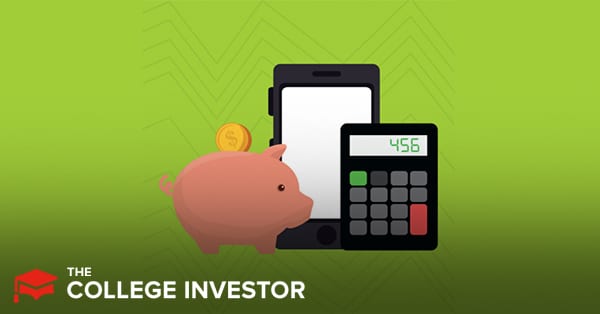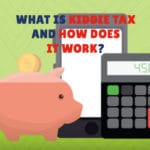
If you’re a college student who’s been growing an investment portfolio, or the parent of a budding investor, the Kiddie Tax is an important concept to understand.
Under the Kiddie Tax, a dependent’s unearned income can be taxed at the parent’s higher marginal tax rate. The result can be some surprisingly high tax bills come April.
Because of the Kiddie Tax, some college investors may want to consider filing their own separate tax returns -- even if they don't work a standard job. Even if you don't think of yourself a "kid," here’s what you need to know about the Kiddie Tax rate.
What Is The Kiddie Tax?
The Kiddie Tax is officially called the Tax On A Child's Investment And Other Unearned Income. It is the tax that a minor has to pay on unearned income including investment income or other types of income.
Prior to 1986, the year the Kiddie Tax was introduced, parents could shelter their investment income from higher tax rates by shifting assets into their minor children's names. The Kiddie Tax is designed to stop parents from giving large gifts to their children, only to have their children realize gains at a much lower tax rate.
Under the Kiddie Tax rule, the first $1,250 of a child’s unearned income qualifies for the standard deduction. The next $1,250 is taxed at the child’s income tax rate. A child (or young adult’s) unearned income beyond $2,400 is taxed at the parent’s normal tax bracket.
Kiddie Tax Brackets
In 2024, the first $1,250 of a child’s unearned income qualifies for the standard deduction. The next $1,250 is taxed at the child’s income tax rate. A child (or young adult’s) unearned income beyond $2,500 is taxed at the parent’s normal tax bracket.
In 2023, the limits rise to $1,250 and $2,500.
What Counts As Unearned Income?
The Kiddie Tax rule only applies to unearned income. Income from a W-2 job, freelancing, or running a business is earned income. Normal income tax rules apply to that type of income.
As a dependent your standard tax deduction is the lesser of $1,250 or your earned income plus $400. If you earned $7,200 from part time work, your standard deduction will be $7,600. That means your tax rate on earned income will be 0%.
Unearned income includes interest, dividends, capital gains, rental income, taxable scholarships, gifts and more. See the full list from the IRS.
Note: Distributions from a 529 plan do not qualify as unearned income for the kiddie tax (because gains in these accounts grow tax-free). However, income from other custodial accounts (such as UTMA or UGMA accounts) does count.
Can This Tax Law Lead to Bracket Climbing?
There was a period of time from 2018-2019 where dependents subject to Kiddie Tax rules could have been taxed at rates higher than their parent's marginal tax rate.
This so-called “Bracket Climbing” was the result of the tax reform law in Tax Cuts and Jobs Act of 2017. However, the SECURE Act of 2019 overturned the bracket climbing rules and restored the Kiddie Tax rules to rules similar to the 1986 Tax reform.
Related: Effective Tax Rates -- How Much You Really Pay In Taxes
Who Does The Kiddie Tax Apply To?
A dependent is anyone who isn’t required to file their own tax return. The Kiddie Tax rule applies to the following types of dependents:
Under the Kiddie Tax rule, unearned income less than $2,500 will be taxed at the child's tax rate. But income from $2,500 to $13,850 is taxed at the parent’s rate. Once dependent have unearned income that exceeds $13,850, they are required to file their own separate return.
How Can This Tax Law Impact College Investors?
If you’re currently a student looking to make money through investing, you may be in for a surprise come tax time. But the rate you’ll pay on income beyond $2,500 is your parent's marginal tax rate, not your own marginal tax rate if you don't file your own return.
For ordinary unearned income (such as rental income), the marginal tax rate ranges from 10% to 37%. And the marginal tax rate on qualified dividends and long term capital gains ranges from 0% to 20%.
If you’re a higher earning student, you and your parents may pay less taxes overall if you file your own tax return. To file your own tax return you must earn at least enough money to provide half your support and claim yourself on your own tax return.
How Can I File The Kiddie tax?
If you made less than $2,500 in “unearned” income, your parents will likely want to continue to claim you as a dependent. Information about a dependent’s unearned income is filed through Federal Form 8615. All the major tax filing software programs support this form.
Having unearned income beyond $2,500 per year is pretty amazing for young investors. If you're in this situation, filing your own return could save you some money in taxes. And if you made more than $13,850 in unearned income, you'll be required to do file a separate return.
But for some dependents, other factors could still make it worth it to have their parents claim them as dependents and pay the Kiddie Tax using Form 8615. Parents with dependents who made more than $2,500 in unearned income, but don't qualify to file their own tax returns, will also need to file Form 8615.
If you're not sure which option would be best for your situation, your tax software can help you minimize the taxes you pay on your unearned income. Check out our full breakdown of the best tax software for 2024.

Robert Farrington is America’s Millennial Money Expert® and America’s Student Loan Debt Expert™, and the founder of The College Investor, a personal finance site dedicated to helping millennials escape student loan debt to start investing and building wealth for the future. You can learn more about him on the About Page or on his personal site RobertFarrington.com.
He regularly writes about investing, student loan debt, and general personal finance topics geared toward anyone wanting to earn more, get out of debt, and start building wealth for the future.
He has been quoted in major publications, including the New York Times, Wall Street Journal, Washington Post, ABC, NBC, Today, and more. He is also a regular contributor to Forbes.
Editor: Clint Proctor
